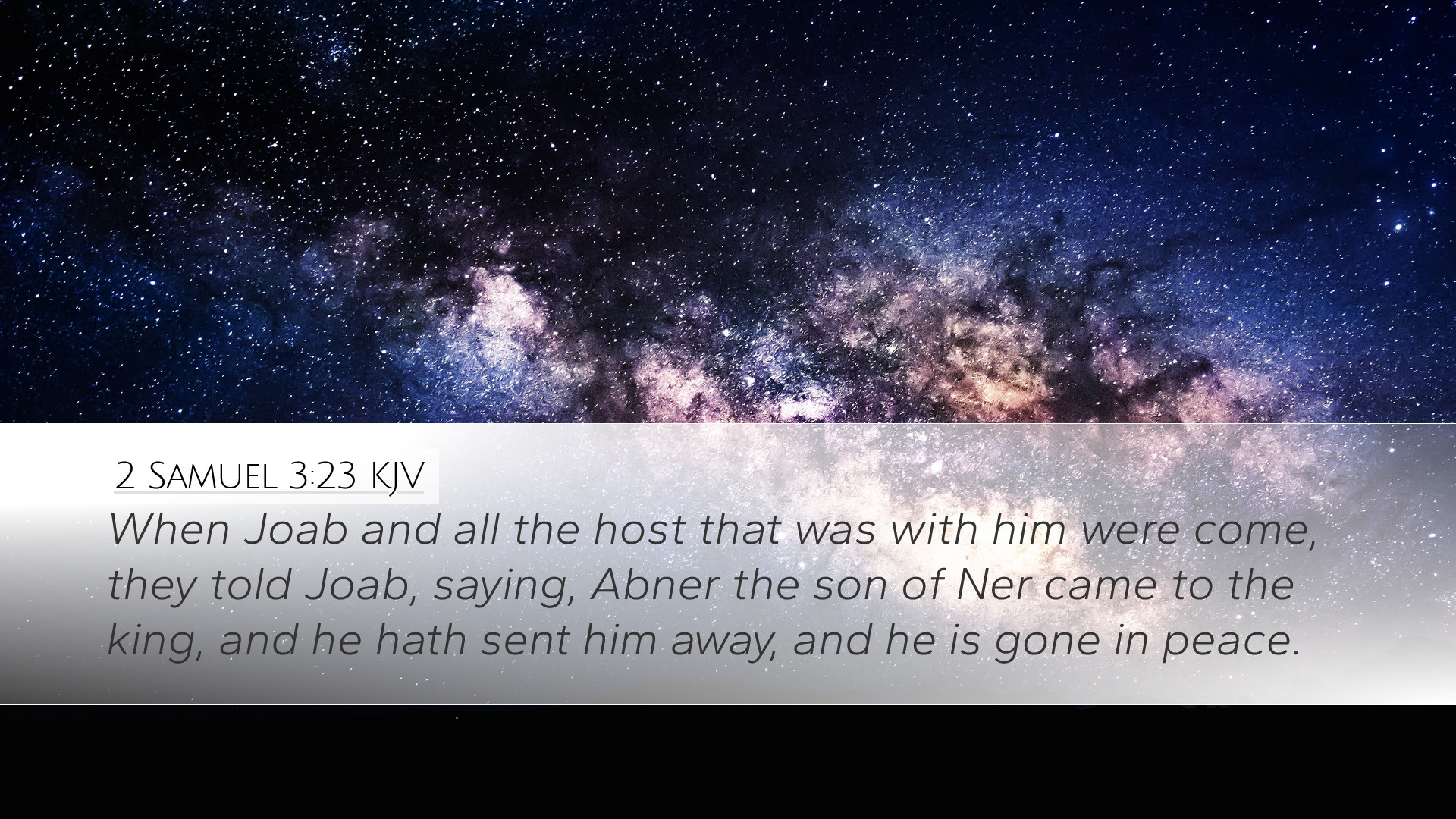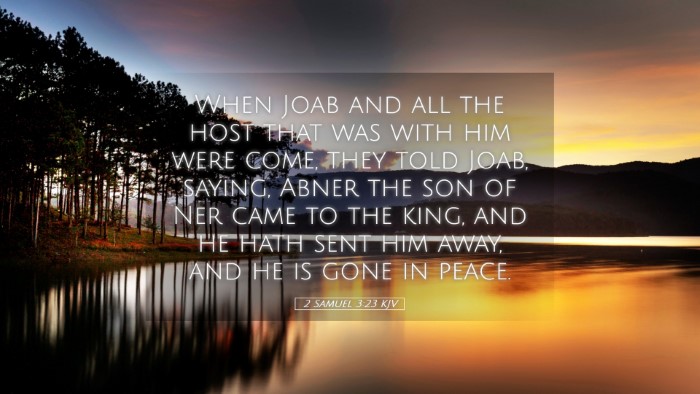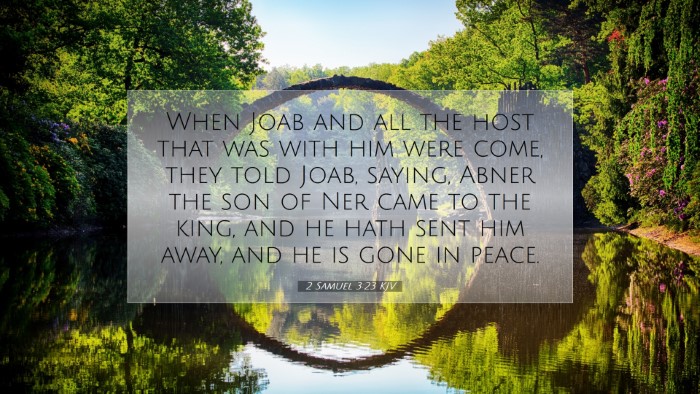Commentary on 2 Samuel 3:23
Contextual Background: This verse comes during a critical time in the narrative of 2 Samuel, where the period of conflict between the house of Saul and the house of David is unfolding. David is being recognized as a leader despite Saul's lineage still holding influence. The events of this chapter delve into the complexities of leadership, loyalty, and the divine mandate over Israel.
Text of 2 Samuel 3:23
“And Joab and Abishai, the sons of Zeruiah, killed Abner, because he had killed their brother Asahel at Gibeon in the battle.”
Verse Analysis
This verse highlights the tension between two significant figures: Joab and Abner. Their conflict stems from Abner's previous act in which he killed Asahel, Joab’s brother. Here, we can explore several themes that are relevant to leaders, theologians, and scholars.
Motive of Joab and Abishai
Retribution: Joab's action signifies the principle of blood vengeance prevalent in ancient Israelite culture. According to Hebrew Law, a person was held responsible to avenge the death of a family member, marking this as a grave moment of personal grievance turning into public consequence. The death of Asahel created a deep personal animosity, compelling Joab to act against Abner, which elucidates familial loyalty against a backdrop of political maneuvering.
The Role of Abner
Abner's Leadership: Abner was a loyal commander for Saul, and his eventual shift towards supporting David marks a pivotal turn in Israel's political landscape. His death represented not just a loss for David, but a profound vacuum in military leadership. Abner’s attempts to reconcile and unify the tribes under David espoused a vision of reconciliation, which was ultimately thwarted by personal vendettas. This tragedy underlines how personal vendetta can interfere with political progress.
Joab's Complex Character
Ambition and Loyalty: Joab, often characterized as a ruthless military leader, embodies the duality of loyalty and treachery. While he serves David, his choices frequently lead to intense moral ambiguity. His act of killing Abner may be viewed as an attempt to consolidate power, suggesting that personal gain often overrides loyalty even within those close to the anointed king. The text raises moral questions about the sacrifices leaders make and the consequences of prioritizing personal grievances over political unity.
The Consequences of Violence
Cycle of Retribution: The narrative presents a grim perspective on the cycle of violence. Joab's killing of Abner does not merely resolve a personal vendetta; it sets forth a series of retaliatory actions that depict the instability and unpredictability of political power during this era. This is reminiscent of the earlier tensions in the land and serves as a foreshadowing of the continued strife that would follow within David's reign.
Theological Reflections
This passage invites deep theological reflection on several key areas:
- Divine Sovereignty: Despite human actions motivated by revenge, God's plan unfolds through the chaos. This raises questions about how divine providence integrates with human actions and decisions.
- Leadership Ethics: The ruthless pursuit of personal vendetta prompts serious discussion about the ethics of leadership in both ancient and modern contexts. How should leaders balance personal loyalties with the greater good? What are the moral responsibilities of those in power?
- Human Fallibility: Joab's actions underscore the persistent struggle with sin, vengeance, and the complexities of the human heart. This remains relevant today, as individuals and leaders alike grapple with similar moral dilemmas.
Scholarly Implications
The implications of this passage stretch into diverse areas of biblical scholarship and ecclesiology. Scholars are challenged to consider the sociopolitical dynamics of ancient Israel and how familial loyalties impact the broader society. Furthermore, the text serves as a historical lens through which contemporary readers can examine the implications of personal agendas within communal or national leadership.
Conclusion
The events surrounding 2 Samuel 3:23 encapsulate the intricacies of power, loyalty, and moral conflict. As Joab avenged his brother, he did so while simultaneously complicating the journey towards a united Israel under David's kingship. This scripture not only enriches our understanding of historical narratives but also frames a discussion around the ethics of leadership, motivations behind actions, and the ever-present need for reconciliation amidst conflict.


